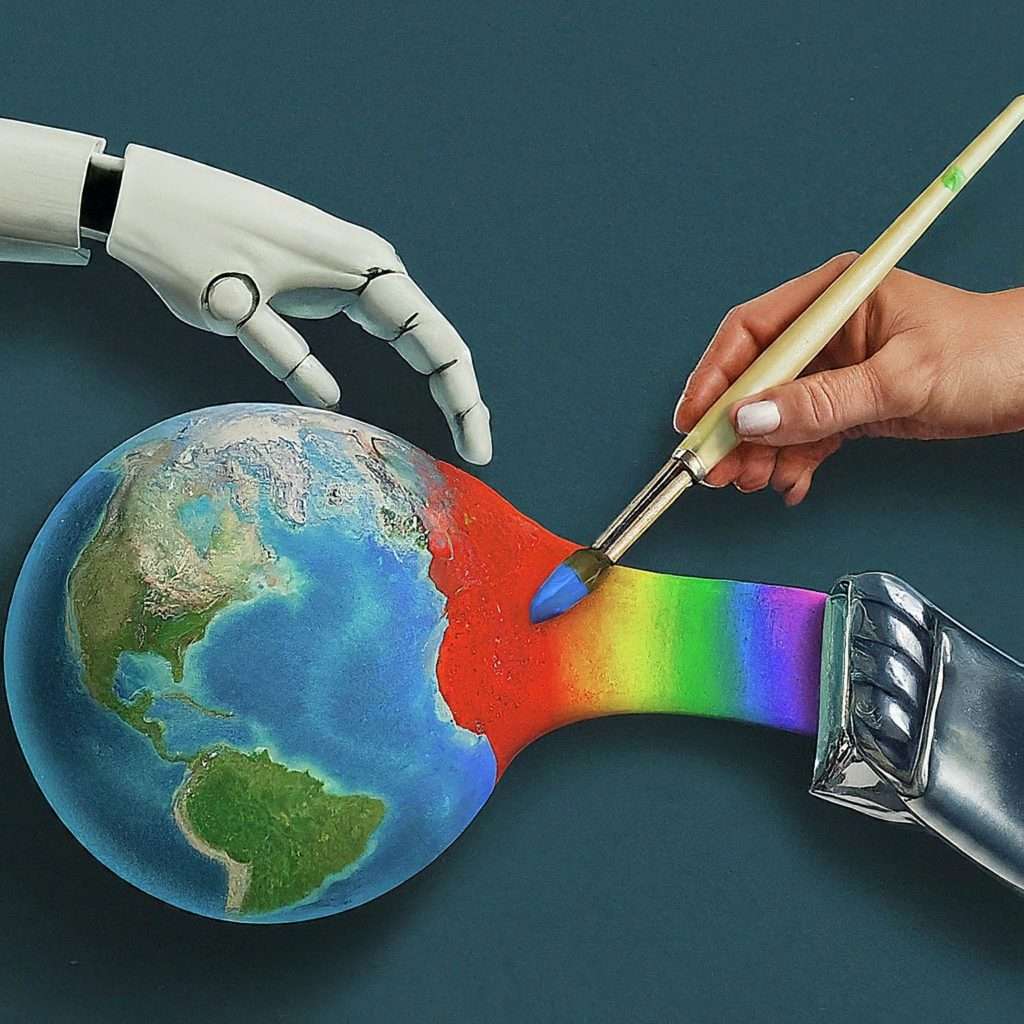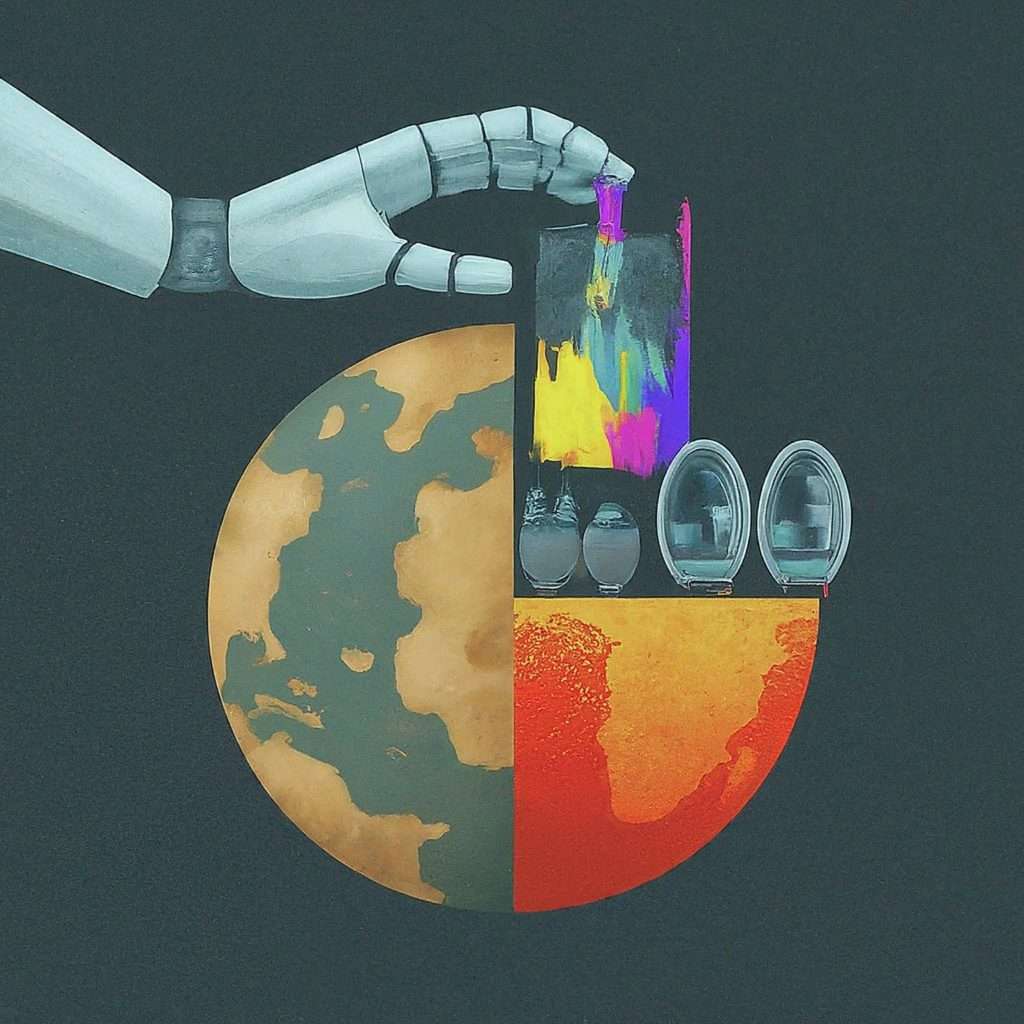Introduction
Imagine a classroom where learning isn’t a one-size-fits-all experience. Picture a student struggling with fractions, bombarded with repetitive worksheets, feeling lost and discouraged. Now, imagine a different scenario. The same student logs into a learning platform that analyzes their previous work, identifies their specific challenges with fractions, and presents a personalized learning path. Interactive games and targeted exercises make practicing fractions engaging, and the student receives real-time feedback, fostering a sense of accomplishment and confidence.

This personalized learning experience is becoming a reality thanks to the rise of AI (Artificial Intelligence) in education. Traditional curriculums often struggle to cater to the individual needs and learning styles of each student. This can lead to disengagement, frustration, and ultimately, hinder learning outcomes. However, AI offers a revolutionary approach to curriculum design, leveraging data to personalize learning journeys and empower students to thrive.
The Power of Data: Forget the days of static textbooks and standardized tests. AI-powered curriculums are data-driven, meaning they use information about student performance, learning styles, and interests to create customized learning experiences. This data comes from various sources, including student interactions with learning platforms, quizzes, and assessments. By analyzing this data, AI can identify areas where students excel and pinpoint topics that require more support.
Personalized Learning Pathways: One of the most exciting aspects of AI-powered curriculums is the ability to create personalized learning pathways for each student. Based on the data collected, AI can tailor the curriculum to meet individual needs. A student who grasps a concept quickly can be presented with more challenging material, while another student who needs more practice can receive targeted instruction and additional resources. This ensures that all students are challenged appropriately, maximizing their potential for learning and growth.
Adaptive Curriculum Content: Gone are the days of rigidly structured curriculums that move at a fixed pace. AI-powered curriculums are adaptive, meaning they adjust the difficulty level of content and suggest relevant learning materials based on a student’s progress. Imagine a student struggling with a complex math concept. AI can detect this and present alternative learning resources, such as bite-sized video explanations, interactive simulations, or real-world examples, allowing the student to grasp the concept in a way that resonates with their learning style.
Real-Time Feedback and Intervention: Traditional curriculums often rely on delayed feedback, such as graded tests or assignments. AI, however, offers the potential for immediate feedback and intervention. As students work through learning modules, AI can analyze their performance and provide feedback in real-time. This allows students to identify and address misunderstandings immediately, leading to a deeper grasp of the material and a more efficient learning process. Additionally, AI can flag students who are consistently struggling with a specific topic, allowing educators to provide timely support and address potential learning gaps before they become major obstacles.
In the next section, we’ll delve deeper into the benefits of AI-powered curriculums, exploring how they can lead to engaged learners, improved learning outcomes, and a more efficient use of educator time. We’ll also address some important challenges and considerations surrounding AI in education, ensuring verantwortung (responsibility) and a human-centric approach to the future of learning.

The potential benefits of AI-powered curriculums extend far beyond simply gathering and analyzing data. Let’s explore how these innovative tools can revolutionize the learning experience for students and educators alike.
Engaged and Motivated Learners: Imagine a student who dreads opening their textbook, finding the content dry and irrelevant. AI-powered curriculums can combat this by tailoring learning to individual interests. Students can explore topics they’re passionate about through interactive exercises and engaging activities. This personalized approach fosters a sense of ownership over the learning process, leading to increased engagement and motivation.
Improved Learning Outcomes: By catering to individual learning styles and identifying areas of need, AI-powered curriculums can significantly improve student outcomes. Adaptive content and personalized learning pathways ensure students spend time mastering essential concepts, while receiving targeted support where they struggle. This deeper understanding leads to better performance on assessments and a stronger foundation for future learning.
Efficient Use of Teacher Time: Educators are often bogged down by administrative tasks and time-consuming grading. AI can handle these tasks efficiently, freeing up valuable teacher time for what they do best – providing personalized instruction, fostering critical thinking skills, and building positive relationships with students. Imagine a teacher focusing their energy on one-on-one interactions, addressing specific learning gaps, and creating a dynamic classroom environment, all thanks to the support of AI.
Gap Identification and Support: Early identification of learning gaps is crucial for student success. Traditional curriculums may miss these gaps until it’s too late. AI can analyze student data to identify areas where students are falling behind in real-time. This allows educators to intervene early, providing targeted support and preventing small issues from snowballing into major roadblocks. Imagine a student struggling with reading comprehension. AI could flag this concern, allowing the teacher to provide individualized reading strategies and ensure the student doesn’t fall behind in other subjects.
Preparing for the Future: The world is changing rapidly, and the skills needed for success are evolving. AI-powered curriculums can stay ahead of the curve by incorporating current trends and real-world skills into the learning experience. Students can develop critical thinking, problem-solving, and collaboration skills – all essential for success in the 21st century workplace. Imagine a curriculum that integrates coding elements into science lessons, fostering creativity and preparing students for a future where technology plays a central role.
Challenges and Considerations: The exciting potential of AI-powered curriculums comes with important challenges and considerations that require careful attention:
Ethical Concerns Around Data Privacy: Students’ data privacy is paramount. Schools and developers need to ensure robust security measures are in place and that data is used ethically and responsibly. Transparency in data collection and usage policies are crucial to building trust and ensuring ethical implementation of AI in education.
Potential for Bias: AI algorithms are only as good as the data they’re trained on. Biased data sets can lead to biased learning experiences. Educators and developers need to be aware of this potential and actively work to ensure diverse data sets and fair algorithms that promote inclusive learning for all students.
The Human Touch Remains Essential: AI should never replace educators. The human element remains irreplaceable in fostering a love of learning, social-emotional skills development, and providing guidance and support. AI’s role is to empower educators with data-driven insights and create personalized learning experiences, not to replace the vital role of human interaction in the classroom.
The future of AI in curriculum design holds immense potential for personalized learning, improved learning outcomes, and a more efficient learning environment. However, responsible development, transparent data practices, and a commitment to the irreplaceable role of educators are crucial to ensure AI remains a tool for good, one that empowers students and unlocks their full potential.
A Glimpse into the Future: The Evolving Landscape of AI in Education
The journey of AI in education is just beginning. Here’s a peek at what the future might hold:
Advancements in AI Technology: Imagine a world where AI-powered virtual reality simulations transport students to the heart of historical events or allow them to dissect a frog virtually. Personalized learning could take on a whole new dimension through immersive experiences that cater to individual learning styles and spark a passion for exploration. AI tutors could become commonplace, providing students with one-on-one, real-time guidance and feedback, tailored to their specific needs.
Collaboration is Key: The development and implementation of AI-powered curriculums requires collaboration between educators, data scientists, and developers. Educators’ expertise in pedagogy and understanding of student needs are essential to ensure AI tools are effective and align with learning objectives. Data scientists can leverage their expertise to build robust algorithms and ensure fair and unbiased learning experiences. Developers can create user-friendly platforms that are engaging for students and easy for educators to integrate into their classrooms.
Lifelong Learning: The potential of AI extends beyond traditional K-12 education. AI-powered platforms can create personalized learning pathways for individuals of all ages. Imagine a platform that tailors its offerings based on your career goals, interests, or existing skillsets. This could revolutionize professional development and lifelong learning, empowering individuals to continuously update their skills and adapt to evolving workplace demands.
Conclusion:
AI presents an exciting opportunity to revolutionize education, making it more personalized, engaging, and effective. However, it’s crucial to embrace this change responsibly, prioritizing data privacy, addressing potential biases, and ensuring the human touch remains at the heart of the learning experience. By harnessing the power of AI in a thoughtful and responsible manner, we can create a future where learning is a lifelong journey filled with discovery, empowerment, and the joy of acquiring knowledge. Let’s continue this conversation, explore the possibilities, and work together to shape a future where AI empowers learning for all.
